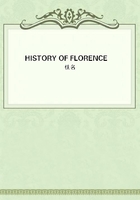
第182章
These creditors established a form of government among themselves, appointing a council of one hundred persons for the direction of their affairs, and a committee of eight, who, as the executive body, should carry into effect the determinations of the council. Their credits were divided into shares, called /Luoghi/, and they took the title of the Bank, or Company of St. Giorgio. Having thus arranged their government, the city fell into fresh difficulties, and applied to San Giorgio for assistance, which, being wealthy and well managed, was able to afford the required aid. On the other hand, as the city had at first conceded the customs, she next began to assign towns, castles, or territories, as security for moneys received; and this practice has proceeded to such a length, from the necessities of the state, and the accommodation by the San Giorgio, that the latter now has under its administration most of the towns and cities in the Genoese dominion.
These the Bank governs and protects, and every year sends its deputies, appointed by vote, without any interference on the part of the republic. Hence the affections of the citizens are transferred from the government to the San Giorgio, on account of the tyranny of the former, and the excellent regulations adopted by the latter. Hence also originate the frequent changes of the republic, which is sometimes under a citizen, and at other times governed by a stranger;for the magistracy, and not the San Giorgio, changes the government.
So when the Fregosi and the Adorni were in opposition, as the government of the republic was the prize for which they strove, the greater part of the citizens withdrew and left it to the victor. The only interference of the Bank of St. Giorgio is when one party has obtained a superiority over the other, to bind the victor to the observance of its laws, which up to this time have not been changed;for as it possesses arms, money, and influence, they could not be altered without incurring the imminent risk of a dangerous rebellion.
This establishment presents an instance of what in all the republics, either described or imagined by philosophers, has never been thought of; exhibiting within the same community, and among the same citizens, liberty and tyranny, integrity and corruption, justice and injustice;for this establishment preserves in the city many ancient and venerable customs; and should it happen (as in time it easily may)that the San Giorgio should have possession of the whole city, the republic will become more distinguished than that of Venice.
Agostino Fregoso conceded Serezana to the San Giorgio, which readily accepted it, undertook its defense, put a fleet to sea, and sent forces to Pietra Santa to prevent all attempts of the Florentines, whose camp was in the immediate vicinity. The Florentines found it would be essentially necessary to gain possession of Pietra Santa, for without it the acquisition of Serezana lost much of its value, being situated between the latter place and Pisa; but they could not, consistently with the treaty, besiege it, unless the people of Pietra Santa, or its garrison, were to impede their acquisition of Serezana.
To induce the enemy to do this, the Florentines sent from Pisa to the camp a quantity of provisions and military stores, accompanied by a very weak escort; that the people of Pietra Santa might have little cause for fear, and by the richness of the booty be tempted to the attack. The plan succeeded according to their expectation; for the inhabitants of Pietra Santa, attracted by the rich prize took possession of it.
This gave legitimate occasion to the Florentines to undertake operations against them; so leaving Serezana they encamped before Pietra Santa, which was very populous, and made a gallant defense. The Florentines planted their artillery in the plain, and formed a rampart upon the hill, that they might also attack the place on that side.
Jacopo Guicciardini was commissary of the army; and while the siege of Pietra Santa was going on, the Genoese took and burned the fortress of Vada, and, landing their forces, plundered the surrounding country.
Biongianni Gianfigliazzi was sent against them, with a body of horse and foot, and checked their audacity, so that they pursued their depredations less boldly. The fleet continuing its efforts went to Livorno, and by pontoons and other means approached the new tower, playing their artillery upon it for several days, but being unable to make any impression they withdrew.
In the meantime the Florentines proceeded slowly against Pietra Santa, and the enemy taking courage attacked and took their works upon the hill. This was effected with so much glory, and struck such a panic into the Florentines, that they were almost ready to raise the siege, and actually retreated a distance of four miles; for their generals thought that they would retire to winter quarters, it being now October, and make no further attempt till the return of spring.